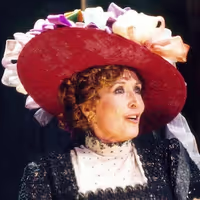PRIMA FACIE Reviews
#1PRIMA FACIE Reviews
Posted: 4/23/23 at 10:17am
https://www.playbill.com/article/olivier-winning-prima-facie-starring-jodie-comer-opens-broadway-bow-april-23
The Broadway bow of Olivier-winning Prima Facie opens April 23 in the John Golden Theatre. Transferring from the West End with its star Emmy winner Jodie Comer (Killing Eve), who won an Olivier for her performance, the play digs into the legal system and how it fails to serve justice. Previews for the Suzie Miller play began April 11 for an engagement through June 18.
For her Broadway debut, Comer reprises the role of Tessa, a British defense lawyer from a working-class background who has worked hard to become a rising star in the legal field. Often assigned to defend men accused of sexual assault, she dedicates her career to a system she believes in. But her whole world is thrown into question after she ends up in the witness stand. Dani Arlington continues to serve as understudy.
#2PRIMA FACIE Reviews
Posted: 4/23/23 at 8:08pm
Entertainment Weekly is a rave. Grade A+:
https://ew.com/theater/prima-facie-broadway-review-jodie-comer-debut-suzie-miller
MemorableUserName
Broadway Legend Joined: 3/27/19
#3PRIMA FACIE Reviews
Posted: 4/23/23 at 8:22pm
Theatremania:
Review: In Prima Facie, Jodie Comer Plays a Lawyer Who Defends Rapists and Is Raped
https://www.theatermania.com/news/review-in-prima-facie-jodie-comer-plays-a-lawyer-who-defends-rapists-and-is-raped_1699007/
"Taken at face value, Prima Facie is a damning indictment of an inadequate justice system. But beneath the surface it’s just fashionable nihilism and emotional blackmail, undergirded by one of the best performances of the season."
#4PRIMA FACIE Reviews
Posted: 4/23/23 at 9:06pm
After seeing the show yesterday, I have no doubt this will get RAVES from the critics!
MemorableUserName
Broadway Legend Joined: 3/27/19
#5PRIMA FACIE Reviews
Posted: 4/23/23 at 9:27pm
Observer
Review: Jodie Comer Sees Both Faces of the Law in the Powerful Prima Facie
Voicing a dozen characters of various genders and classes, Comer makes her Broadway debut in a one-woman show about a defense attorney turned plaintiff.
https://observer.com/2023/04/review-jodie-comer-sees-both-faces-of-the-law-in-the-powerful-prima-facie/
#7PRIMA FACIE Reviews
Posted: 4/23/23 at 9:46pm
TotallyEffed said: "Just engrave the Tony now."
I second that!
MemorableUserName
Broadway Legend Joined: 3/27/19
#8PRIMA FACIE Reviews
Posted: 4/23/23 at 10:02pm
NYT/Jesse Green praises Comer, but not the play; not a Critic's Pick
Review: In ‘Prima Facie,’ Jodie Comer Makes the Case
The “Killing Eve” star has a spectacular Broadway debut in a play that puts sexual assault jurisprudence on trial.
https://www.nytimes.com/2023/04/23/theater/prima-facie-review-jodie-comer.html
"But for me the change undid the previous work of emotional engagement in favor of flat-out persuasion on a subject with which few in the audience would be likely to disagree. As Tessa’s speech ran on, repeating ideas that had already been dramatized, I began to feel pummeled, as if by a politician.
Enlightening and enraging theatergoers in the hope of changing the world is not, of course, a violation of dramatic policy. That Tessa’s last name honors Eve Ensler, now known as V, ought to have been a clue to Miller’s intentions. V’s 1996 play “The Vagina Monologues” broke with dramatic forms (which, after all, were formalized and popularized by men) to make a difference well beyond them. I also thought of Larry Kramer, whose plays were pleas: agitprop and artistry pulped into something new. Thinking of works like theirs, and a singular performance like Comer’s, I won’t belabor the compromises of “Prima Facie.” Especially if, in the long run, it wins its case."
MemorableUserName
Broadway Legend Joined: 3/27/19
#9PRIMA FACIE Reviews
Posted: 4/23/23 at 10:02pm
Theatrely:
Jodie Comer Triumphs In PRIMA FACIE — Review
https://www.theatrely.com/post/jodie-comer-triumphs-in-prima-facie-review
#10PRIMA FACIE Reviews
Posted: 4/23/23 at 10:03pm
UGH!! What is with Jesse Green? Seriously!
MemorableUserName
Broadway Legend Joined: 3/27/19
#11PRIMA FACIE Reviews
Posted: 4/23/23 at 10:04pm
Deadline:
‘Prima Facie’ Review: ‘Killing Eve’ Star Jodie Comer In Tour De Force Broadway Debut
https://deadline.com/2023/04/prima-facie-jodie-comer-broadway-deadline-review-1235334217/
MemorableUserName
Broadway Legend Joined: 3/27/19
#12PRIMA FACIE Reviews
Posted: 4/23/23 at 10:05pm
4 stars from TimeOut
https://www.timeout.com/newyork/theater/prima-facie-review-broadway-jodie-comer
"I leave it to the jury of theatergoers to determine whether the larger legal argument that Miller makes in Prima Facie follows necessarily from Tessa’s specific experience. But about Comer’s performance there can be no doubt: This is a powerful and moving star turn. It has a very different energy from the Broadway season’s other great dramatic performance by a woman. Whereas Jessica Chastain spends A Doll’s House nearly immobile, Comer is a whirlwind: moving furniture, changing costumes, standing on tables, switching into the voices and accents of more than a dozen minor characters as Tessa narrates her story. Her virtuosity is not just a game—it’s emotional. Miller builds a respectable case, but Comer argues it brilliantly. "
MemorableUserName
Broadway Legend Joined: 3/27/19
#13PRIMA FACIE Reviews
Posted: 4/23/23 at 10:07pm
Vulture:
Jodie Comer Makes a Winning Case for Prima Facie
https://www.vulture.com/2023/04/theater-review-jodie-comer-prima-facie-broadway.html
"If the writing and production falter, Comer’s performance speaks more than clearly than all that’s going on around her. She locates, in Tessa’s disappointment, the resentment of someone cutting herself on a knife she thought she knew how to wield expertly. Comer emphasizes what makes Tessa specific—her humor, her chip on her shoulder, her fraught connection with her mother—even while Miller’s writing gets more generalized. She tries to make the character into not an everywoman but an individual who’s clinging to whatever she can to try to balance her reality. That gives Prima Facie its overwhelming emotional heft. Arguments may be convincing in the abstract. But it’s in staying with a singular case, making you feel for a wholly realized person, that Comer articulates what’s real, urgent, and unbearable."
MemorableUserName
Broadway Legend Joined: 3/27/19
#14PRIMA FACIE Reviews
Posted: 4/23/23 at 10:07pm
The Wrap:
‘Prima Facie’ Broadway Review: Jodie Comer Turns Theater into Sport
https://www.thewrap.com/jodie-comer-prima-facie-broadway-review/
MemorableUserName
Broadway Legend Joined: 3/27/19
#15PRIMA FACIE Reviews
Posted: 4/23/23 at 10:09pm
Chicago Tribune/NY Daily News
Review: ‘Prima Facie’ with Jodie Comer is a gripping Broadway legal thriller
https://www.chicagotribune.com/entertainment/theater/broadway/ct-ent-broadway-review-prima-facie-20230424-ffsggznkbbbf3gkfr3dbtsxwba-story.html
MemorableUserName
Broadway Legend Joined: 3/27/19
#16PRIMA FACIE Reviews
Posted: 4/23/23 at 10:09pm
Daily Beast:
Review: Jodie Comer Makes ‘Prima Facie’ Broadway’s Most Powerful Show
https://www.thedailybeast.com/review-jodie-comer-makes-prima-facie-broadways-most-powerful-show
#17PRIMA FACIE Reviews
Posted: 4/23/23 at 10:10pm
Dylan Smith4 said: "UGH!! What is with Jesse Green? Seriously!"
It's enough to make one miss Ben Brant--no, I can't finish that thought. ![]()
MemorableUserName
Broadway Legend Joined: 3/27/19
#18PRIMA FACIE Reviews
Posted: 4/23/23 at 10:12pm
Washington Post
Jodie Comer comes to Broadway and turns the heat up full blast
The “Killing Eve” star delivers a solo turn for the ages in “Prima Facie,” Suzie Miller’s monodrama about sexual assault
https://www.washingtonpost.com/theater-dance/2023/04/23/jodie-comer-prima-facie-broadway/
"I thought on the first occasion I saw “Prima Facie” that as it galloped toward its gripping conclusion, the impulse to instruct an audience became too transparent. I didn’t feel that this time. What Comer’s Tessa has to say about her experience must be said, and repeated and repeated, until the world has changed and “Prima Facie” comes to feel like history, and not current events."
MemorableUserName
Broadway Legend Joined: 3/27/19
#19PRIMA FACIE Reviews
Posted: 4/23/23 at 10:13pm
3 1/2 from NY Post
‘Prima Facie’ review: Brilliant Jodie Comer is a must-see on Broadway
https://nypost.com/2023/04/23/prima-facie-review-brilliant-jodie-comer-is-a-must-see/
MemorableUserName
Broadway Legend Joined: 3/27/19
#20PRIMA FACIE Reviews
Posted: 4/23/23 at 10:14pm
4 out of 5 times two from NY Stage Review
Prima Facie: A Jodie Comer Tour de Force
https://nystagereview.com/2023/04/23/prima-facie-a-jodie-comer-tour-de-force/
Prima Facie: Jodie Comer in Arresting Stage Debut as Barrister Turned Plaintiff
https://nystagereview.com/2023/04/23/prima-facie-jodie-comer-in-arresting-stage-debut-as-barrister-turned-plaintiff/
#21PRIMA FACIE Reviews
Posted: 4/23/23 at 10:15pm
Dylan Smith4 said: "UGH!! What is with Jesse Green? Seriously!"
Most critics agree that the play is not as good as she is, and I think his criticism is completely valid. Read the reviews from London, and you'll see that the critics over there had similar issues with the script.
chanel
Broadway Star Joined: 1/28/04
#22PRIMA FACIE Reviews
Posted: 4/23/23 at 10:26pm
Comer is "powerhouse" and the physical production deftly works with her.
https://chelseacommunitynews.com/2023/04/23/review-jodie-comer-makes-prima-facie-a-one-person-show-with-a-difference/
#23PRIMA FACIE Reviews
Posted: 4/23/23 at 10:56pm
DTLI Consensus:
13 positive, 1 mixed (NYT), 0 negative
https://didtheylikeit.com/shows/prima-facie/
#24PRIMA FACIE Reviews
Posted: 4/23/23 at 11:03pm
Dylan Smith4 said: "UGH!! What is with Jesse Green? Seriously!"
Green is definitely biased, this is definitely a must see.
#25PRIMA FACIE Reviews
Posted: 4/23/23 at 11:14pm
How surprised is everyone by the lack of a critic's pick? I certainly was.
Videos








